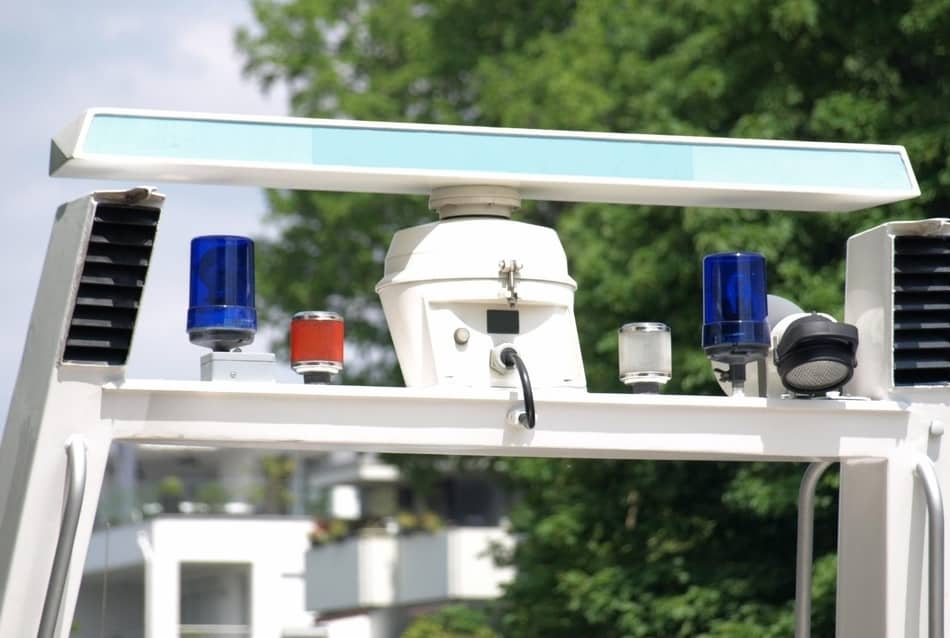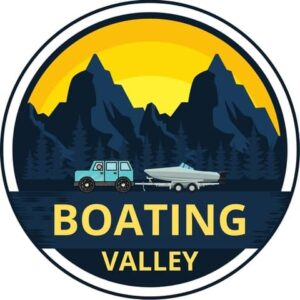Radars (Radio detection and ranging) are essential for boats. They keep track of the farther objects (ships, lands, or any obstacles) that you can’t see with your eyes. But, do you need a radar for your boat?
Boats need radars, especially for the boats which go in seas & oceans or offshore. Generally, for the boats that go in inland waters, such as lakes or ponds, don’t need to have one. Still, radars are an excellent option; they detect the obstacles miles ahead and helps to prevent boat collisions.
Radars are essential for offshore boating or boating at night or in fog. Mostly, for boating in inland waters (lakes or ponds), you don’t need to have one. Radars give the data related to all the obstacles on the way you are heading (in miles ahead) to prevent any boat collisions.

Radar working
Radars simply send the radio waves (within the range), and if there are any obstacles (ships or landmass) in between, then the radio waves get reflected back to the radar. Based on the time that took the radio waves to come back, it will calculate the distance and display the range on the screen.
The radars work like that, and all the time, it will send the radio waves, and the radio waves get reflected back to the radar if there is any obstacle. So, if there is any ship in the given range, then the radio waves will touch the ship and gets reflected back to the radar.
Why are radars essential for offshore boating?
The main advantage of radars is that they will show the position of any obstacles miles ahead in your way. By knowing that you can prevent boat accidents or collisions. The main difference is boat accidents in the seas are not the same as boat accidents in lakes or ponds.
If you are involved in any accidents in lakes or ponds
- Most probably, you will have proper signals because lakes are small and they are located inland, not outlands like seas or oceans.
- Meaning you can contact the coast guards or other boaters, and they will reach you out quickly (since lakes or not as big as seas or oceans).
- The overall process of rescuing you may take less time because you have a signal, and the lakes are not so big to reach you out by coast guards.
- If you don’t have a signal, then you can use VHF radio, or if there are any other boaters around you (mostly, you can find other boaters around you in the lakes), you can signal them as well.
If you are involved in any accidents in seas or oceans
- Generally, boating offshore means, you will go far away from the shore. It is hard to get signals properly out there.
- You can contact the coast guards if you have a proper signal in VHF radio. Even after contacting the coast guards, it might take a long time to reach you out and rescue you.
- Even for contacting other boaters sometimes, you can’t find anyone in the middle of the sea. The overall process of rescuing you may take a long time.
Overall, being involved in a boat accident in lakes has a bit low risk (because you will get rescued quickly than in seas) than being involved in accidents in seas or oceans. You will be rescued soon in the lakes than in seas or oceans.
So, being involved in boat accidents in the seas or oceans is much more dangerous than being involved in lakes. So, by having a radar in your boat while going offshore, you can prevent all these incidents or collisions by knowing the position of the obstacles in your way prior.
Sometimes, being involved in a boat accident in sea + bad weather will be a worse situation than being involved in a boat accident in lakes. So, for offshore boating, radars are essential.
Benefits of radars on a boat
- Radars help in preventing collisions between boats or ships.
- Radars detect the objects that are miles away. Meaning you will have a lot of time (say 30 min) to change the direction you are heading.
- Radars will detect the storms or squalls in advance. By knowing them in advance, you can get out of the way.
- You can see land at night or in dense fog so you can navigate into port on RADAR alone.
- Radars have an alert system “radar fence” if you set that on, then it will give an alert (alarm) in advance if you are moving closer to any obstacle. Meaning you can set a range, 1 mile (if the distance between your boat and any obstacle is less than 1 mile, then it will give an alert).
- Modern marine radar systems from brands like Furuno will plot the relative position of other ships over time. It will tell the position of the ship 10 min (you can set the time) prior. You can tell where the ship will be in after 10 min in the course of time.
Drawbacks of radars on a boat
- Sometimes radars may not show small obstacles such as small boats or any small rocks in the water. It can be due to the big waves or bad weather.
- Radar can identify what is there in the front row, rather than what is there in the back row. If there is a small boat behind a big ship, then the radar will only detect the big ship, not the small boat.
- Sometimes, radar may not work correctly due to any disturbance in the atmosphere, such as clutter echos, rains, etc. (source).
What types of boats need radars?
Radars are essential for sailboats, offshore boats (boats that go on seas or oceans), yachts, ships. If you are an offshore boater, then you should have a radar on your boat. While boating in seas, you should know the obstacles before, to prevent boat collisions or accidents.
For any offshore boat, radar is essential. Boating offshore and boating inland water are not the same. You will get to know the weather changes prior. Within minutes the weather will change quickly in seas or oceans, often small squalls occur in seas. By having a radar in the boat, you can go away from the bad weather.
Offshore boats need radars. By having a radar on the boat while boating offshore, you will get to know other boats or ship positions prior in the sea or ocean, you will get to know the weather changes prior, and you can prevent collisions or accidents.
Radars are essential for sailboats because sailboats will often go offshore (boating in seas or oceans), and often sailboats will rely on winds for sailing. By having a radar, you can detect the small squalls or storms prior, and you can get out of that place.
Yachts and big ships also need radars, these are big boats, and having a radar will help a lot. All these big boats or ships will take a lot some time to stop. By knowing the obstacle prior, we can stop the ship or boat before preventing any collisions or accidents.
Boats that go at night also need radars. Radars are essential for the people who go boating at night or in fog, where you can’t see what is there in front of you. By having a radar on the boat, will give a proper lookout at night or in fog.
What types of boats don’t need radars?
Boats that don’t go offshore (seas or oceans) don’t need to have radar because, in inland waters, there won’t be any big ships or yachts. Mostly, small boats will go in inland waters, and every boater will lookout properly. So, there is less chance for a collision in inland waters.
Unlike in outland waters (seas or oceans), big ships or yachts sometimes may not recognize your presence properly (especially at night or in fog) and may lead to any accidents. Mostly, small boats will go in inland waters, and every boater will lookout properly.
So, there is less chance for a collision in inland waters. Mostly, every boater will do proper lookout in inland waters (since inland waters contain more obstacles than in seas or oceans), which prevents boat collisions. Still, if you go for boating at night or in fog, it is good to have one on your boat.
Conclusion
Boat radars are essential for offshore boating because they will track every object in miles ahead, and it will help you a lot to prevent collisions. For inland boaters, most probably, you don’t need to have one.
